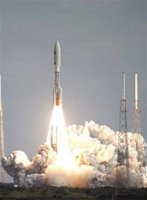In Chesterfield County Virginia (bordering on Richmond),
a high school special education teacher has been charged with taking indecent liberties with a student. She appeared in court today, and the focus of the reporters was on her attire, of all things. She is reported to have worn a "short dress, a tight green dress".
A local AM DJ Mac Watson tried to start a conversation about whether such an outfit was inherently inappropriate for a person being charged with any kind of sex crime.
Mac soon found however that the conversation needed to focus on something else. He had so many calls and emails supporting the woman, that he felt the need to take his audience to task. This 39 year old mother and teacher is accused of taking indecent liberties with a minor - a friend of her 16 year old son. The reaction of listeners ranged from,
You shouldn't judge her before she goes through the due legal process, to the predictable,
Hell, what's the problem? Every 16 year old boy dreams about that, and she's just giving him what he wants! Who is hurt by that?!?Mac addressed both of these arguments in the short time I was able to listen.
First, the due process argument. He and his producer listed off several other legal cases in which absolutely zero calls have come in from listeners concerned about due process, including a member of Chesterfield County Board of Supervisors who is also a P.E. teacher, who was accused last month of two sex crimes against a minor. The difference? This teacher is a woman, Mac says. The audience and the media have no problem hanging a man out to dry for sex with a minor, but a woman... that's just
hot.
Double standard? I hate to jump to conclusions without more study, but it seems like a double standard. So... is it? If it walks like a duck and quacks like a duck, isn't it a duck? Interestingly,
William Saletan has an article on Slate.com on this topic - it is also available on audio, check the link. And he takes on this issue like a good scientist - not with his gut, but with facts. And he says this is no duck:
The new public enemy is the bespectacled babe who teaches our kids math in the classroom and sex in the parking lot... I hate to change the subject from sex back to math, but this frenzy—I'm trying hard not to call it hysteria—reeks of overexcitement. Sex offenses by women aren't increasing. Female offenders are going to jail.
(emphasis mine)
I don't like to make broad generalizations, nor generalizations about broads (what
movie is that from?), but anecdotal evidence - my gut - tells me that people do see it differently. There is some double standard.
Debra Lafave deserves to serve time, even if her lawyer says she is too pretty for jail. Imagine a man making that argument - I'm too pretty for prison. It wouldn't work - double standard, at least for the general media and general public.
But the numbers don't lie. The legal system isn't allowing a rash of female teacher sex scandals. It just seems that way. William Saletan's article is pretty clear (he credits Slate intern Ben Raphel with the heavy work), and it will have to be the final word on the subject for me, unless someone digs up better research to refute it. That looks like a tall order.
So what about the second argument from the listeners of the radio show today? That it's okay because that boy wanted it? Putting aside for a moment the issue that he doesn't get a say in the legality of the woman's alleged actions, this one is definitely a double standard. I have yet to even see an argument on this. It is simply understood that when a male teacher seduces a minor and claims she (or he!) wanted it, it is statutory rape or worse. When a female teacher seduces a minor and claims the student wanted it, well, that's a little different. Many people nod wisely. Others shake their heads sadly. It is only a small minority who proclaim that this is the same thing on a moral level. An older man and a teenaged girl - that popped up all over the place in my history books. It just isn't seen the same way, and I don't know that I want to make a strong argument on how I feel about it, other than to say that teachers always have to be careful. Everybody has to, but how many people in society are surrounded by 17 year olds all day? Keep the window shades and classroom doors wide open, teachers.
Oh, and whatever you do, don't wear a tight, short green dress to court.



